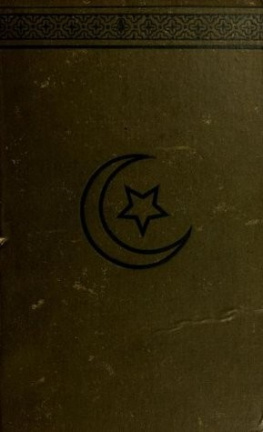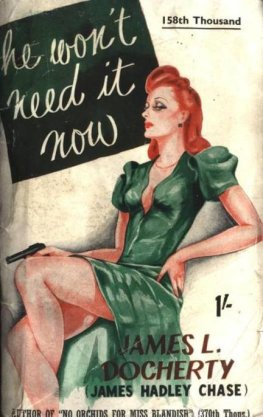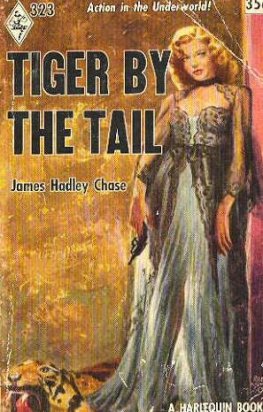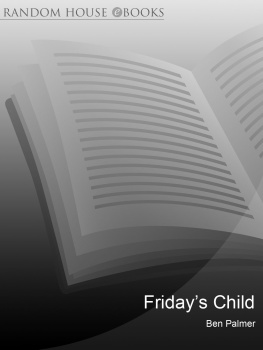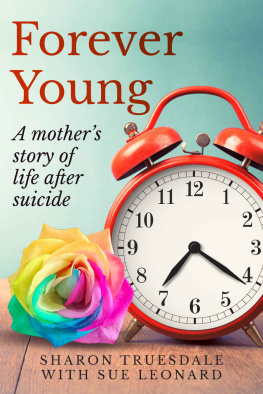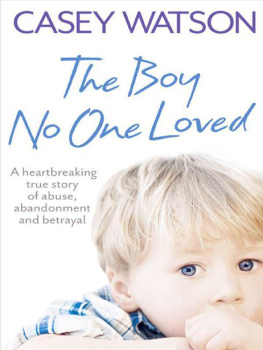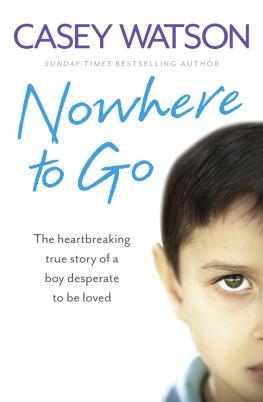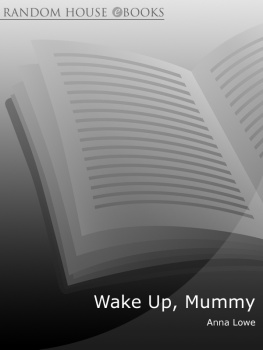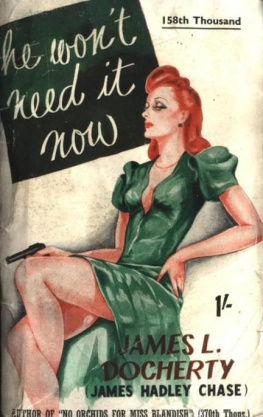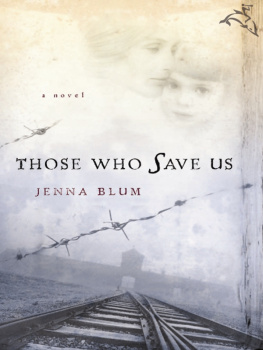THE BOY WHO LOVED TORNADOES
THE BOY WHO LOVED TORNADOES
A Mothers Story
Randi Davenport

Published by
ALGONQUIN BOOKS OF CHAPEL HILL
Post Office Box 2225
Chapel Hill, North Carolina 27515-2225
a division of
WORKMAN PUBLISHING
225 Varick Street
New York, New York 10014
2010 by Randi Davenport. All rights reserved.
Printed in the United States of America.
Published simultaneously in Canada by Thomas Allen & Son Limited.
Design by Anne Winslow.
Library of Congress Cataloging-in-Publication Data
Davenport, Randi, [date]
The boy who loved tornadoes : a mothers story /
Randi Davenport.1st ed.
p. cm.
ISBN 978-1-56512-611-4
1. Autism in childrenTreatment. 2. Autistic children
Care. 3. Parents of autistic children. I. Title.
RJ506.A9D38 2010
618.9285882dc22
2009031221
10 9 8 7 6 5 4 3 2 1
First Edition
FOR
CHASE
AND
HALEY

AUTHORS NOTE
EACH OF US HAS A STORY TO TELL; this is mine. It comes from that most imperfect and peculiar of local records: my memory. Because of that, I have changed names and identifying characteristics of some of the people I describe. After all, they probably never imagined the things I remember them saying and doing would ever appear in a book, and they are entitled to their privacy. Changing names is not the same as changing a story. I would give anything to be able to tell a different story. But no matter the identities I disguise, the story remains the same.
DRAGON
ONCE IN A FAR AWAY valley there was a prince. The valley smelled like pine trees. There were two streams that ran through the valley. You could smell pine trees all year round in the valley. One day a terrible dragon came and was destroying the valley. A prince was risking his life to kill the dragon. The king sent out knights to help him but they were not doing any good. The valley seemed doomed and after that, the world.
Chase, age 9
PROLOGUE
IN MY DREAMS, we are whole again.
I saw an image of the human brain on a science program on television. This brain had been mapped so that different parts lit up when the subject received certain stimuli. I watched as little waves of lightning flashed across this brain, bright white against the scanners dark gray background, the palimpsest of every medical imaging device I have ever known, where something unanticipated paints out that which we expect to see.
The producers were careful to protect the identity of the subject. Despite our maps and scans, some of us still see those who suffer the symptoms of its failures as complicit in the brains wandering actions. In the unconscious judgment of those who would assign to the illness of the brain the qualities of a doomed soul, perhaps we see how little we have progressed from the nineteenth-century phrenologists, who measured every bump and lump of the skull as evidence that only a lack of moral character, a paucity of Christian virtue, resided within.
In my dreams, Chase is whole and Zip is whole and Haley belongs to the family she remembers, as do I. But in the morning, dreams fade. When we go about our days, we still live in a world apart.
ONE
THERE WAS NO POSSIBILITY of staying with the others so Chase and Haley and I walked down the hill away from the picnic and along the creek until we came to a concrete footbridge. Haley ran ahead of us but Chase stopped at the edge of the bridge and stared intently at the trail leading into the woods. There were deep shadows under the branches and dark places where the pine needles gave way to mud and soft fluttering ferns of a bright green color. Everything moved a little in the breeze. Over our heads, pale yellow leaves shifted against dark green loblolly pine and blue sky; in front of us, the trail led up to a ridge, where the November sky opened over us like a bell.
Chase, I said. Come on.
No, he said. No.
On the other side, Haley walked backward up the hill so she could watch what we were doing while she moved away from us.
Come on, Chase, I said. Its okay.
He looked hard at the path behind me. His head listed a little to one side, as if his neck were a mast on a boat that had heeled over too far in deep water.
I could hear Haley scuffling through the leaves. She was nearly at the top of the hill and in another moment would follow the trail out of sight.
All right, I said tightly. Lets go see the waterfall.
Chase relaxed as we started back to the picnic buildings; this way, the path was out in the open and led down to the creek by a gazebo and you could see people playing softball on the next field. The park allowed you to bring in a horse to ride and a big bay with a tiny red-shirted rider delicately picked its way across the creek where the water flattened out into swampy pools. There were dogs wearing bandannas and couples with toddlers. A family dressed in identical tight shorts jostled past us just as we got to the bridge by the gazebo.
The Haw River Assembly held the picnic every year to recruit volunteers for the annual Haw River Festival, when fourth graders came from schools all over the state to go on nature walks and learn about ecology. Id come to the picnic because I wanted us to be like other families and pictured us camped in tents at a river site for a week in the spring. I told Chase wed paddle canoes like Indians and maybe hed see a milk snake hanging like thick rope from a tree limb. In the evening, Haley would dance to the sound of drums by a big fire and wed go to sleep while owls called out in the trees.
Chase refused to eat with the others, who sat outside in the bright sunshine, so we ate by ourselves in the dim living-room area of the recreation center. He kept his head down and crammed bites into his mouth until food fell from his spoon onto his lap, his legs, his little acre of floor. He didnt look up or speak to us.
Haley complained about having to eat inside and I made my usual pleading sounds: Its not that bad, Chase has trouble outside, this is just fine, well sit with everyone else when hes finished eating.
She ate her meal in silence and looked away from me. Afterward, Chase did not want to sit in a circle with the others. He did not want to go down to the creek to do some stream watching, did not want to toss a Frisbee with the other kids, did not want to bird-watch, touch a raccoon pelt, sing a song about the river. He stood at the back of the room instead and paced and muttered to himself while Haley tried to appear small and unnoticeable in the chair beside me.
Chase was fourteen that day, and Haley was ten. Despite my high hopes, and I had many, there was never any possibility of staying with the others. The cant of Chases head, the soft slur of his words, the pitch and lean of his walk, his tendency to fall to staring or into convulsions, his preternatural interest in things morbid and otherwordly, his obsessions and monologues, his endless pacing and agitating, his body that served like a drain and took all of the air out of the room, all of the air and all of the energy, and all of the focus and all of the attentionthese things made a wall between us and everyone else. It was as if we were on one side of a thick plate-glass window, through which we could clearly see the normal world, forever out of reach.
Having a disability in the family locks you in a space whose borders the rest of the world cannot see, and which you yourself cannot see until you run smack into its limits. Then there is nothing to do but to fall back to the center of the world. Others look in at you and wonder why you cant do anything differently and you share their sentiments. If you are me, you think that all you have to do is keep trying, keep moving, and you can overcome anything. And some days, perhaps, you feel as if you have. But on most days, you know that the only thing that has been overcome is you. For many years, I didnt realize that you cant run away from the physical fact of disability. Once it lies in the roadway behind you, even if it causes doctors to shake their heads and experts to frown, even if it cannot be named, it lies forever on the roadway in front of you.
Next page


